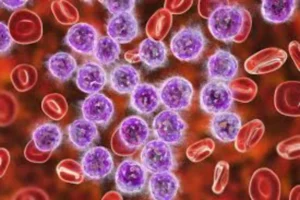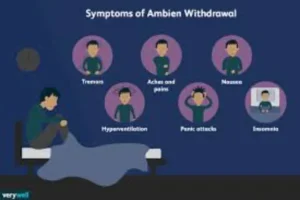Finding Your Path to Healing: Exploring DBT and Partial Hospitalization Programs for Mental Wellness

Mental health challenges can feel overwhelming. But, effective treatment options exist to support your healing journey. Dialectical Behavior Therapy (DBT) and Partial Hospitalization Programs (PHP) offer comprehensive approaches for individuals seeking professional mental health support.
When searching for dbt treatment centers near me, understanding the right therapeutic approach becomes crucial. These innovative programs provide structured, compassionate care. They help individuals develop essential coping skills and emotional regulation strategies.
Our guide will walk you through the transformative world of mental health treatment. We’ll explore how DBT and PHP can empower individuals to reclaim their emotional well-being. From understanding treatment methodologies to navigating local resources, we’ll provide insights to help you make informed decisions about your mental health care.
Mental wellness is a personal journey, and finding the right support can make all the difference. By exploring dbt treatment centers near me, you’re taking a courageous first step toward healing and personal growth.
Understanding DBT: A Comprehensive Approach to Mental Health Treatment
Dialectical Behavior Therapy (DBT) is a strong way to help people deal with tough emotions. It was made by psychologist Marsha Linehan. It started for borderline personality disorder but now helps with many mental health issues.
DBT centers offer programs with four main parts: mindfulness, distress tolerance, emotion regulation, and interpersonal skills. These parts help people manage strong feelings and get better at relationships.
Mindfulness teaches staying in the moment and not judging thoughts. Distress tolerance shows how to handle hard situations without getting too stressed. Emotion regulation helps understand and control feelings better.
Interpersonal skills teach clear communication, setting limits, and keeping healthy relationships. When looking for DBT centers, find ones that teach all these important skills.
DBT’s strength is its balance of accepting now and working towards change. It helps patients accept their feelings while aiming for betterment. This balance makes DBT a key part of mental health healing.
The Role of Partial Hospitalization Programs in Mental Health Recovery
Partial hospitalization programs (PHP) are key in mental health care. They offer deep support for those facing tough mental health issues. These programs give a structured setting where patients learn important coping skills and stay connected to their lives.
To start a PHP, patients first go through a detailed psychological check-up. This check-up helps decide the best treatment plan. It ensures a care plan tailored to each person’s needs. PHPs fall between inpatient care and regular outpatient therapy.
PHPs include many therapy sessions each day. Patients join group therapy, one-on-one counseling, manage their meds, and learn new skills. These programs help with many mental health issues, like depression, anxiety, bipolar disorder, and addiction.
The main aim of PHPs is to give intense treatment but let patients go home at night. This helps them keep up with their daily duties while getting the care they need. They learn vital life skills, develop strong coping strategies, and aim for lasting mental health.
Experts carefully plan these programs to support healing and long-term recovery. PHPs offer day-long treatment with support at home. This makes them a flexible and effective way to improve mental health.
Benefits of Combining DBT with Partial Hospitalization
Combining Dialectical Behavior Therapy (DBT) with Partial Hospitalization Programs (PHP) offers a powerful way to heal. It helps those facing tough emotional challenges. This mix addresses many aspects of mental health.
Looking for dbt treatment centers near me? You’ll find great benefits in programs that use both DBT and PHP. PHP’s structured support lets people learn DBT skills. They get to practice emotional control in a supportive setting.
DBT and PHP together offer special advantages. People learn coping strategies in group sessions and get help right away. They practice managing emotions in real-life situations. This helps them change bad behaviors faster.
Key benefits include better emotional strength, improved communication, and stronger crisis skills. Participants learn to handle complex emotions with support. These programs take a complete approach to mental health recovery.
Navigating DBT treatment centers near me: Finding the Right Program
Finding the right DBT treatment centers near me can feel overwhelming. Mental health recovery needs careful research and choosing a program that fits your needs. Start by asking your primary care doctor or local mental health experts for recommendations.
Online resources are great for starting your search. Websites like Psychology Today and the National Alliance on Mental Illness (NAMI) have detailed directories. You can filter by location, treatment type, and insurance.
When looking at DBT treatment centers, consider important factors. Check if the therapists are licensed and have experience with DBT. Also, see if the program offers comprehensive care for your mental health challenges.
Reach out to local mental health groups for more help and advice. Many centers offer free consultations to help you decide. Ask about their approach, group therapy, and success stories with similar cases.
Finding the right DBT treatment center is a personal journey. Take your time to research, ask questions, and choose the program that best fits your recovery goals.
What to Expect in a Partial Hospitalization Program
Understanding how to start a partial hospitalization program can feel less scary when you know what to expect. Patients first go through a detailed assessment. Mental health experts then create a treatment plan that fits their needs.
A day in a PHP is filled with therapy activities. You’ll join group therapy, have one-on-one counseling, and learn new skills. These programs run five to seven days a week. You go home in the evenings, getting strong support while still being part of your life.
Managing medications is a big part of PHP. Psychiatrists help adjust your meds to fit your needs. The team works together to tackle your mental health issues, offering more than just symptom relief. For some individuals, coordinating care may also include access to online mental health medication services as part of an overall treatment plan guided by licensed professionals.
The first step is a detailed intake process. You’ll talk about your health history, symptoms, and goals. This helps create a program that meets your mental health needs. You’ll get support and guidance as you start your healing journey.
The main aim of a PHP is to offer intense support. You’ll learn skills to manage your mental health and work towards long-term wellness. This sets a strong foundation for your ongoing healing and growth.
The Journey from Crisis to Stability: PHP Success Stories
Recovery from mental health challenges is a deeply personal journey. Sarah’s story shows how finding the right dbt treatment centers near me can change lives. She had been dealing with intense emotional issues for years. Then, she found a partial hospitalization program (PHP) that turned her life around.
At her local DBT treatment center, Sarah learned how to manage her emotions. The program offered structured support that regular therapy couldn’t. She learned dialectical behavior therapy techniques to cope with her feelings.
Michael’s story is also inspiring. He found hope through a comprehensive PHP approach. By looking for dbt treatment centers near him, he got specialized care. This care helped him rebuild his life step by step.
These stories show a key point: effective mental health treatment is more than just counseling. Partial hospitalization programs offer deep, evidence-based help. They give patients the tools they need for lasting stability.
People facing mental health challenges can find new hope in specialized treatment programs. The right PHP can be a turning point. It can transform crisis into a chance for growth and healing.
Insurance Coverage and Financial Considerations for Treatment
Figuring out the cost of a partial hospitalization program can be tough. Mental health care needs careful budgeting. Knowing what your insurance covers is key to getting the help you need.
Most big health insurance companies now cover mental health care thanks to the Affordable Care Act. If you’re looking into a partial hospitalization program, call your insurance to check your mental health benefits. Find out about in-network places, what percent of costs they cover, and any costs you might have to pay yourself.
If you don’t have insurance, there are still ways to pay for treatment. Many places offer fees based on how much you can afford. Some even have financial help or payment plans to make treatment more affordable.
Before starting a partial hospitalization program, get your financial stuff ready. You’ll need your insurance details, proof of income, and be ready to talk about payment with the center’s financial advisor. This way, you can focus on getting better without worrying about money.
Some treatment centers work with many insurance companies and can check your coverage for you. Don’t be shy about asking about payment plans, scholarships, or community resources that might help with your treatment.
Transitioning Back to Daily Life: Aftercare Planning
Finishing a partial hospitalization program is a big step in mental health recovery. But, it’s just the start. Going back to daily life needs careful planning and support from dbt treatment centers near me.
Aftercare planning is key to keeping up the progress made in treatment. Patients learn to use DBT skills in everyday life, slowly gaining independence. Step-down programs help with a structured return to normal life, with ongoing help from dbt treatment centers near me.
Outpatient therapy is vital for long-term recovery. Regular meetings with mental health experts help patients keep up their coping skills and face challenges. Support groups also help, offering a community to share experiences and stay accountable.
Staying connected with dbt treatment centers near me makes the transition smoother. These centers often offer follow-up care, like individual counseling, group sessions, and resources for dealing with setbacks. The aim is to build a lasting support network that helps keep mental wellness strong.
Creating a personal aftercare plan means spotting potential triggers, making coping strategies, and building a support system. Patients work with their treatment team to make a plan that meets their specific needs. This plan helps them stay mentally stable in the long run.
Supporting Loved Ones Through Treatment Programs
When a family member starts a partial hospitalization program, it’s important to understand how to support them. Families are key in helping loved ones get better. They offer a vital support system during treatment.
Learning about the program helps you support your loved one better. Find out about the treatment, especially Dialectical Behavior Therapy (DBT). This knowledge lets you create a supportive home environment that supports their therapy.
Good communication is crucial in supporting a loved one. Ask them about their experience, listen without judging, and show you care. Join family therapy sessions if invited. They can help you understand how to support your loved one better.
Don’t forget to take care of yourself. Supporting a loved one through treatment can be tough emotionally. Look for support groups, counseling, or therapy to take care of your feelings.
Practical help is important too. Help your loved one keep up with treatment, create a stable home, and encourage their healing. Your patience, understanding, and support can greatly help their recovery.
Conclusion
Mental health recovery is a personal journey that needs compassion, support, and effective treatments. Dialectical Behavior Therapy (DBT) and Partial Hospitalization Programs (PHP) are powerful tools for those seeking mental health care. When looking for dbt treatment centers near me, knowing what these programs offer can change lives.
Starting a partial hospitalization program begins with understanding your needs and finding the right mental health professionals. Everyone’s healing path is unique. But these treatments offer structured, proven ways to learn coping skills and manage emotions.
Recovery is not just possible—it’s within reach with the right support and resources. Mental health treatment has grown a lot, offering hope and practical ways to deal with emotional challenges. By looking into DBT and PHP, you’re taking a brave step towards understanding yourself, growing stronger, and living a more balanced life.
Remember, asking for help is a sign of strength, not weakness. Your mental health is important, and professional help can give you the tools and guidance you need. With dedication, professional support, and the right treatment, you can grow and heal in meaningful ways.







